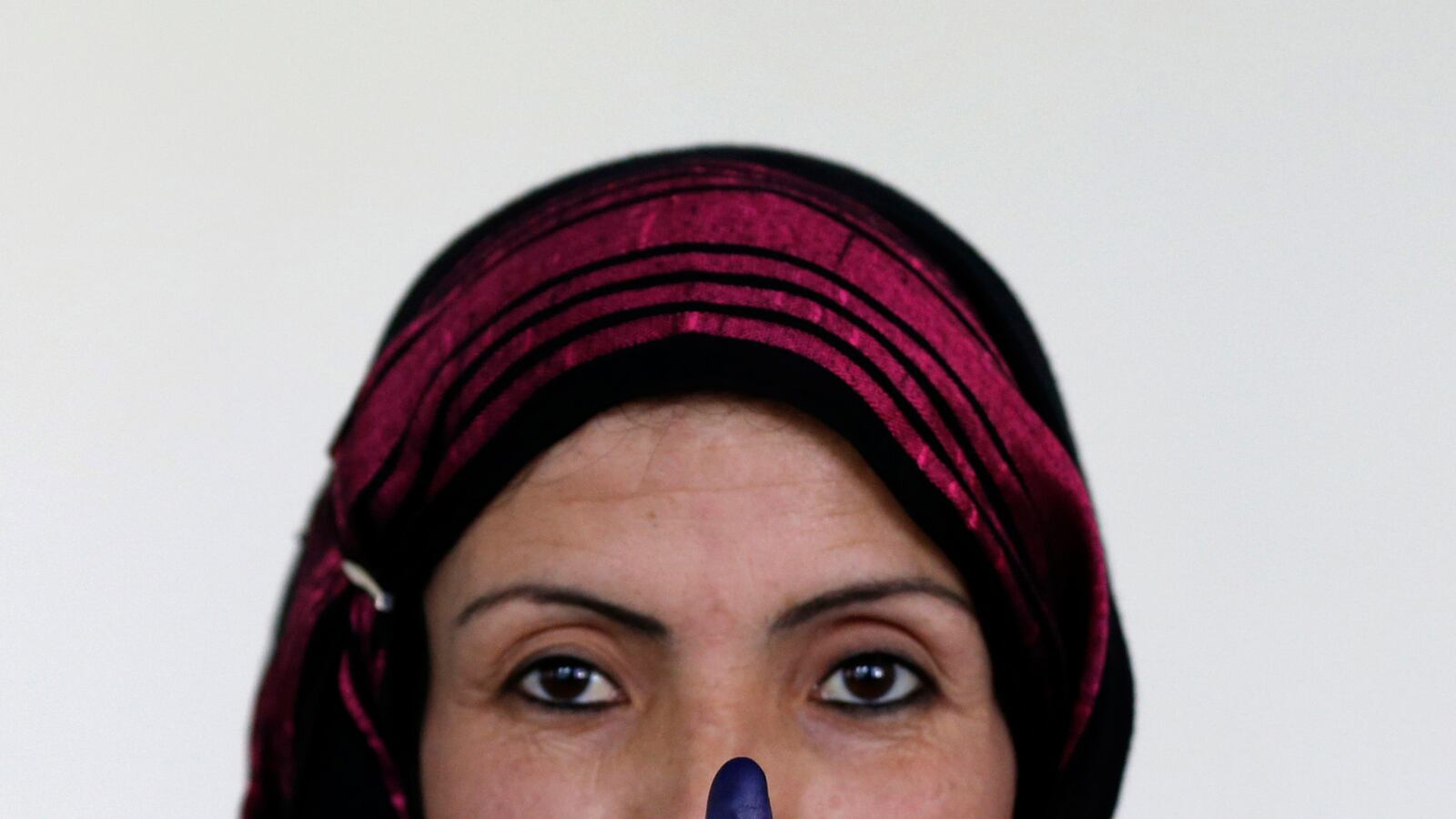KABUL, Afghanistan — Here's what U.S. Secretary of State John Kerry needs to remember when he lands in Kabul on Friday to try to fix the mess that the Afghan elections have become: The first priority is not the politicians, it’s the voters.
Afghans went to the polls in April and again in June, even though the Taliban threatened to kill them for doing so. In the areas where they were supposed to be in the greatest danger—in the south and southeastern parts of the country where the Taliban operate widely and ruthlessly—Afghans rushed to polling centers to choose their leader for a five-year term.
In the first round no candidate got the 50 percent of the votes plus one needed for a winner, as the Afghan Election Law dictates. In the June 14 runoff election, around 8 million Afghan men and women cast ballots, according to preliminary results announced this month. But amid predictable allegations of fraud, the results, it would seem, have become negotiable.
Abdullah Abdullah, the former foreign minister and the front runner in the first round, whose strongest support is in the north, northeast and some central parts of the country, was fairly confident he’d win the second round as well. During several media events prior to the elections he suggested that in the largely Pashtun south and southeast, people would be too afraid of Taliban reprisals to vote. He went further, saying the time has come for Pashtuns to acknowledge a non-Pashtun as their leader. Playing all the angles, he noted that he’s half Pashtun himself, but in the end his strong ties to the Tajik-led faction that fought a disastrous civil war with Pashtun factions in the pre-Taliban 1990s did not endear him to the largest ethnic group in the country.
By contrast, Ashraf Ghani, the current forerunner in the partial second round results, got record support in Pashtun areas. Ghani, an academic and former finance minister, greatly benefited from the polarization at the polls and easily surpassed Abdullah in the second round with over a million-vote lead. The national and international observers who witnessed the elections across Afghanistan noted the obvious increase in participation. There were reports of rigging, fraud and the use of violence to influence voting. But those complaints were on both sides.
On July 9, Abdullah Abdullah rejected the preliminary results in a massive rally in Kabul and alleged President Hamid Karzai, the Election Commission and the Ghani team had conspired to rig the results and steal his victory. In effect Abdullah called into question the legitimacy of the whole electoral process. He threatened to create a “parallel” government. Then he called on his supporters to refrain from any violent actions and asked for a few days to decide his future course of action.
That’s where Kerry comes in. Abdullah Abdullah clearly is looking to win through negotiations in a room with the Americans what he didn’t win at the polls.
To be sure, the fledgling Afghan democracy is at a critical juncture, and international mediation might prove helpful in resolving the crisis, but if that means sidelining the legal electoral institutions like the Independent Election Commission (IEC) and the Election Complaint Commission (ECC) entirely, it will be a major blow to the democratic process. Afghans will lose faith in it and the credibility of modern political institutions will crumble.
The international arbitrators should give a chance to the Afghan constitutional election bodies to launch a thoroughly impartial screening of the votes before announcing any final results. In the meantime, both Ghani and Abdullah should engage in a meaningful dialogue to overcome this standoff and salvage the nation's nascent democracy.
The usual American answer in a situation like this is to press for a national unity government. (Look at Iraq right now, where that’s being held up as the only way out of the crisis that has torn the country apart.) The United States and its allies will advocate representation of all political sides in the coming Afghan government to ensure its sustainability and effectiveness and avoid a resurgence of the Taliban.
So Ghani and his team should be prepared to discuss such a government as an option. But, sadly, Afghans will have to accept that in countries like theirs, casting a vote is not enough to get a government of their choice. It’s the foreign power brokers and backdoor negotiators that decide their destiny





